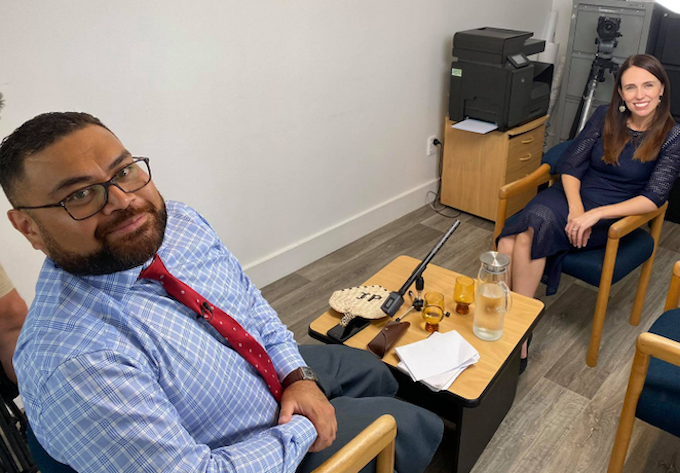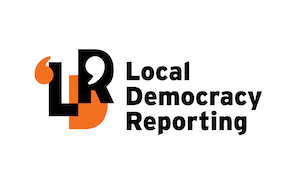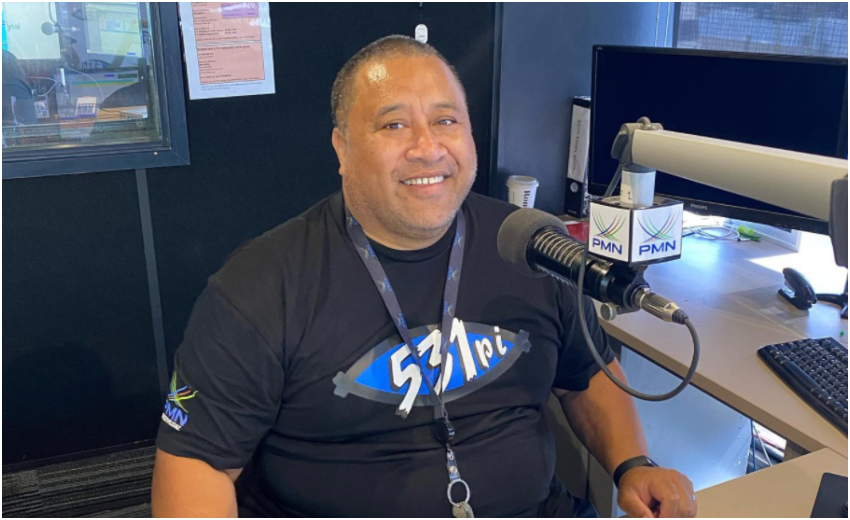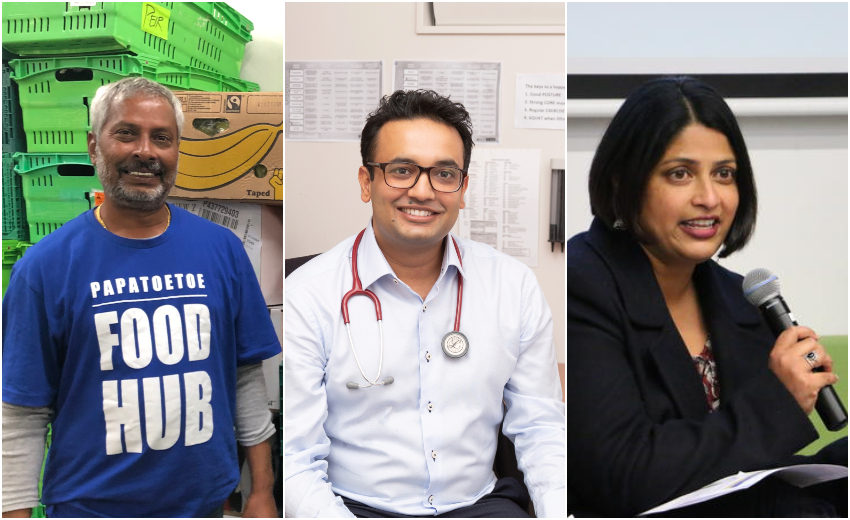
Have the New Zealand government’s covid-related messages been getting through to Pacific and non-Pacific ethnic communities in South Auckland? Justin Latif tried to find out.
LOCAL DEMOCRACY REPORTING: By Justin Latif of The Spinoff
John Pulu is one of the best-known television and radio personalities in New Zealand’s Pacific community.
He not only fronts TVNZ’s Tagata Pasifika Saturday morning show, but also hosts a four-hour Tongan-language current affairs and talkback programme on Pacific Media Network’s 531pi radio station every Wednesday afternoon.
Pulu says combating misinformation has been a major focus in his roles over the last year.

“Covid is real, it’s happening, but I’m also a believer that listeners and viewers must make their own mind up. So rather than just us saying it, we’re in a position to connect our listeners to people who have the right information.”
The Ōtāhuhu resident not only ensures his audiences hear from Pacific epidemiologists and health clinicians, but thanks to his strong relationship with Jacinda Ardern, he’s able to ensure the prime minister can speak directly to Pacific audiences.
“I’ve lost count how many times I’ve interviewed her. It shows she is not just focused on one community or one group. And because the current outbreak is on our side of Auckland, having her front up is so important.”
Pulu says their relationship goes back to when Ardern was still an opposition MP.
‘Met her at movie screening’
“I met her at a movie screening when she came as Carmel Sepuloni’s date for the night. We took a selfie and she asked me to add her on Instagram. I didn’t realise she would be the leader of the nation one day.
“I wouldn’t say we’re BFFs [best friends forever], but we’re connected on social media and she’s always said I can get in touch whenever we want an interview, and she respects our community.”
Pulu, who is regularly interviewed by Tongan-language radio shows from Tonga and Australia for updates on the situation in Aotearoa, says the pandemic has made his life much busier.
“I consider myself very fortunate that I’m able to continue doing what I love and in a role where we can help make a difference by negating the misinformation that’s out there, and try and use our platforms wisely.”

Pacific Media Network chief executive Don Mann says the organisation, which annually receives $4.5 million in government funding, provides shows in nine different Pacific languages and also supports the Ministry of Pacific Peoples with public information campaigns.
“Part of our response has been to place Ministry of Health messaging on our channels and radio shows and to do that we’ve given up some of our airtime that we normally sell commercially, and we’ve been recompensed for that – not huge amounts, but it’s fair.”
Mann says the network’s two radio stations have experienced significant audience growth over the last 12 months, which he puts down to “people wanting information from a trusted source and in their own language”.
But Mann says people shouldn’t think Pacific and migrant communities consume their news in just one way.
“Our people are a sophisticated audience who are used to seeking information from multiple sources, from an entity like ourselves or from other organisations, and they are able to consume information in multiple languages.”

Covid news in the ethnic media
Gaurav Sharma was associate editor at the Indian News up until recently, when he had to return to India to be with family. He says his publication ran covid-related double-page spreads most of last year and he believes most ethnic news organisations have done an incredible job at covering the pandemic. His only complaint is that it took a while for the government to direct their advertising spend towards migrant-focused publications such as his.
“We took the initiative [to inform people about Covid] and the government advertising did come, but it came quite a bit later, maybe around August. And the proportion of funding that ethnic media gets is quite low. It has been a struggle at times for the media with advertising being down in general, but I think our media have done a wonderful job.”
Raju Ramakrishna lives and works in ethnically diverse Papatoetoe. He has noticed people have been much more reticent to venture outside during this latest lockdown.
“In the first few lockdowns, people were rushing in and out of the supermarket, but this time around people are more well-behaved in many ways – more circumspect, keeping to themselves, and there’s a feeling of uncertainty and insecurity.”
Ramakrishna helps run the Papatoetoe Food Hub and is well-known in Auckland’s Indian community as the former lead singer of a popular South Asian band. He believes his fellow Indians are keen to stay up to date with the latest covid news and comply with any restrictions.
“Generally South Asians conform to authorities and are quite compliant. In the circles I’m familiar with, people are well-informed and they know where to go when they need some information. Radio Tarana, which is the station most people listen to, is up to date with news and any breaking news is reported.”
Newly elected Indian-born Labour MP Dr Gaurav Sharma (who shares a name with the former Indian News associate editor mentioned above) attends numerous cultural events as well as being regularly interviewed on ethnic radio stations for his expertise as a medical doctor.
Positive information in cultural settings
“I think the information is out there. I know from talking to community leaders that every time there’s a level change, they have been sharing information through their networks and they’ve also been talking about it in their communal settings.
“It’s really positive to hear that people are accessing information in their own cultural settings and in their own language.”
According to the government’s Office for Ethnic Communities, $1.4 million has been spent on advertising for “culturally and linguistically diverse” audiences. Priyanca Radhakrishnan, who’s the minister for diversity, inclusion and ethnic communities, says video updates in a range of languages have also been distributed through community networks.
 “Having a diverse Labour caucus has allowed us to share important messages in different languages on ethnic media channels and social media,” she says.
“Having a diverse Labour caucus has allowed us to share important messages in different languages on ethnic media channels and social media,” she says.
“We also held a Zoom hui with Dr Ashley Bloomfield and ethnic community leaders around the South Auckland region to listen to their feedback and answer questions they had about Covid-19 and the vaccine.
“Concerns have been raised with us about whether the vaccine will be halal, for example, and Dr Bloomfield confirmed to the group of hundred plus attendees that it is.”
Raju Ramakrishna says if there’s any concern about people not being informed, it’s not for a lack of effort on the part of the media or the government.
“I know people are saying the messaging hasn’t been quite right, but I really think that’s not true. The messaging has been out there, so a lot of it boils down to carelessness, rather than people not getting the information.”
Justin Latif is the South Auckland editor at The Spinoff. This article is republished with the permission of The Spinoff and Local Democracy Reporting.














































